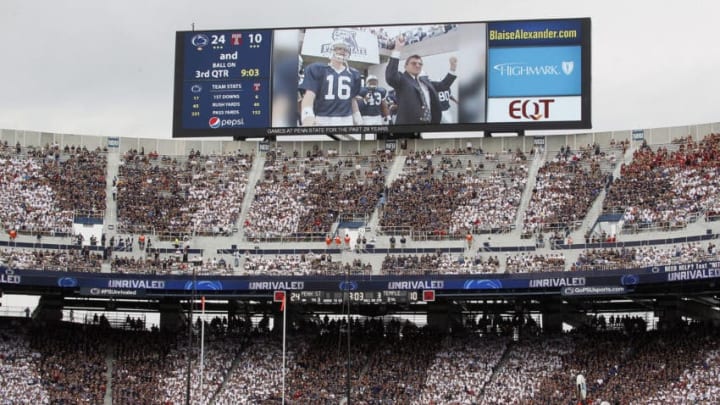Fans of Penn State football can expect some changes to the game this season, as the NCAA has approved new rule changes proposed earlier this year. The most notable change is that the clock will now run after first downs are achieved in all divisions except Division III, with the clock still stopping after first downs during the final two minutes of each half.
This change is expected to reduce the number of plays by an average of seven per game, according to Steve Shaw, secretary-editor of the rules committee. Stopping the clock after first downs has been a rule that has differentiated college football from the NFL since 1968, but with the new rule changes, the game will become more aligned with professional football. Unfortunately, no 2-minute warning has been mentioned as of yet, making the hurry-up offense in college (from a time perspective) actually more difficult than the NFL.
The Playing Rules Oversight Panel (PROP) annually vets rules changes as proposed by the NCAA Football Rules Committee, which made this recommendation in March. While Divisions I and II will adopt the new clock rule, Division III has pushed back and announced federated (separate) playing rules for that division.
In addition to the clock rule change, the PROP has approved two other rules committee recommendations. First, teams will now be prohibited from calling consecutive timeouts. This change will eliminate the ability for coaches to artificially stop the clock in order to gain an advantage in late-game situations.
Secondly, penalties at the end of the first and third quarters will now be enforced on the first play of the next quarter. This change will help streamline the game and avoid unnecessary delays.
There are potential major ramifications in the wagering world, as the over/under totals could see a significant reduction. Losing an average of 7 plays a game, as well as not being able to run hurry-up offenses as effectively will be a very interesting dynamic to observere during the course of the season.
While these changes may take some time to get used to for players, coaches, and fans alike, they are expected to help improve the overall flow of the game and the safety of the players. With the NCAA and PROP continuously reviewing and refining the rules of college football, the future of the sport looks bright and exciting.
